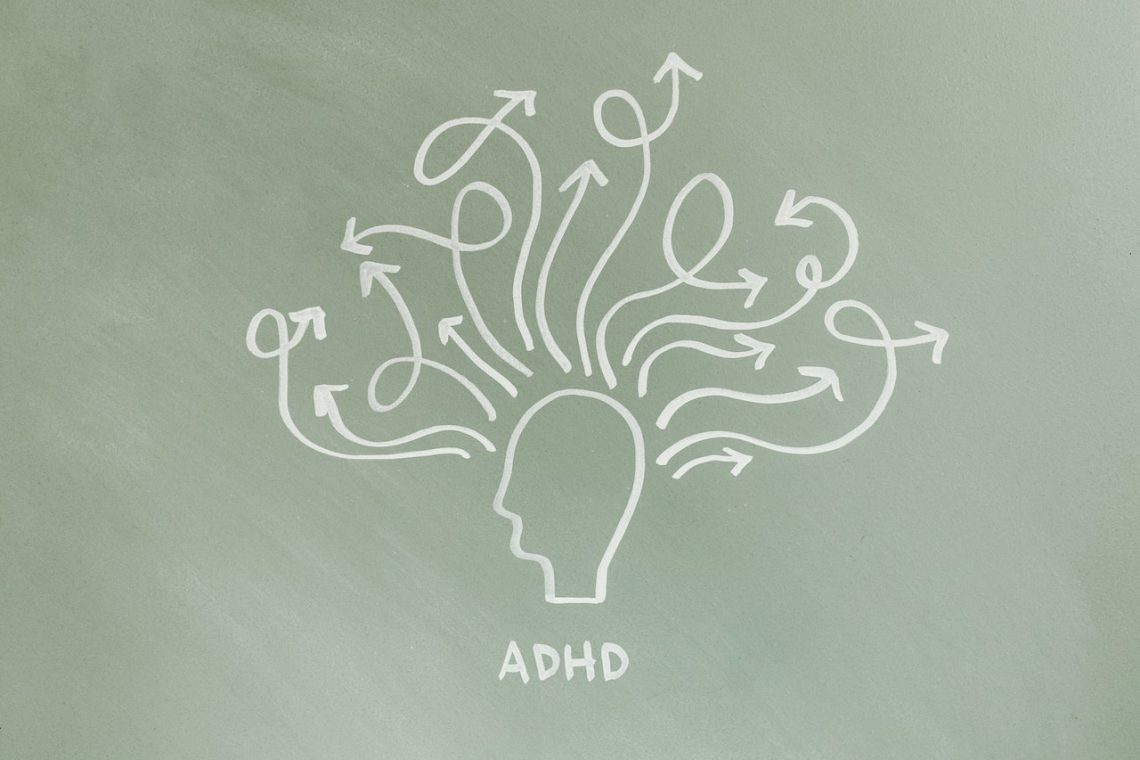
Embracing Holistic Approaches to ADHD Managment: Nurturing the Mind & Body
Looking for a holistic approach to ADHD? Attention-deficit/hyperactivity disorder (ADHD) is a neurodevelopmental condition that affects people of all ages. I personally have a son who falls into this neurodivergent category, and Lord knows, there are some days that I wonder about myself as well. While medication and therapy can play vital roles in managing ADHD symptoms, a holistic approach can compliment traditional methods and contribute to a well-rounded treatment plan. By adding various holistic practices and lifestyle changes, individuals with ADHD can create a supportive environment that improves focus, self-regulation, and overall well-being. In this post, we explore some holistic ways to help with ADHD, offering a range of strategies that can be customized to suit your own individual needs.
1. Mindfulness & Meditation
Mindfulness and meditation techniques have shown promising results in improving attention and helping with impulse control. Engaging in mindfulness practices, such as deep breathing exercises, progressive muscle relaxation, and guided meditation, can help individuals with ADHD enhance their ability to concentrate, regulate emotions, and cultivate a sense of calm. Incorporating mindfulness into daily routines, either through dedicated practice or integrating mindful moments throughout the day, can be immensely beneficial.

2. Regular Exercise
Forget about exercise just being to lose weight or build muscle. Physical activity is well known to have a positive impact on cognitive function, mood regulation, and overall well-being. Engaging in regular exercise can be an effective strategy for holistically managing ADHD symptoms. Activities like jogging, swimming, dancing, or yoga not only promote better focus and impulse control but also aid in the release of neurotransmitters like dopamine and serotonin, which are essential for maintaining a more balanced mood and better attention span. So you can strengthen your mind, as well as your body. Time to break a sweat!
For more information on the benefits of exercise for your overall mental well-being click here

3. Balanced Nutrition
Proper nutrition plays a super crucial role in supporting brain function and overall health and can be a super easy way to holistically approach managing ADHD. A well-balanced diet that includes lean proteins, whole grains, fruits, vegetables, and healthy fats can provide the necessary nutrients for optimal brain function. Avoiding processed foods, excessive sugar, and artificial additives may help minimize hyperactivity and improve cognitive performance. While this can be hard sometimes with the American diet, those extra minutes you spend reading those food labels will definitely pay off. Additionally, omega-3 fatty acids, found in fatty fish, walnuts, and flaxseeds, have shown promise in supporting cognitive function and reducing ADHD symptoms.
For more information on nutrition for ADHD click here

4. Sleep Hygiene
Everyone feels better after a good night’s sleep. Did you know quality sleep is essential for cognitive functioning and emotional well-being? When looking for a holistic approach, establishing a regular sleep routine and practicing good sleep hygiene can significantly benefit individuals with ADHD. Creating a soothing bedtime routine, maintaining a consistent sleep schedule, ensuring a comfortable sleep environment, and limiting all types of screen time before bed can help promote better sleep quality, leading to improved focus, attention, and emotional regulation during waking hours.
5. Organizational Strategies
Individuals with ADHD often struggle with organization and time management. So when looking for a holistic approach to help manage the symptoms of ADHD anything that can make life easier in this area is helpful. Implementing effective organizational strategies can help reduce stress and improve productivity. Utilize tools like planners, calendars, and reminders to stay organized and manage tasks efficiently. Breaking larger tasks into smaller, more manageable steps can make them less overwhelming. Additionally, maintaining a clutter-free physical environment and creating designated spaces for important items can aid in maintaining focus and reducing distractions.

6. Supportive Social Environment
Building a supportive social network can be crucial for individuals with ADHD. Seek out understanding friends, family members, or support groups where you can share experiences, gain advice, and receive encouragement. Talk it out. Educating loved ones about ADHD and how it affects your life can foster understanding and empathy. Surrounding yourself with positive, uplifting individuals who appreciate your strengths and offer support during challenges can make a significant difference in managing ADHD.
While ADHD definitely presents unique challenges, embracing a holistic approach can empower these neurodivergent individuals to experience better control and less anxiety. By incorporating mindfulness and meditation practices, engaging in regular exercise, maintaining a balanced diet, prioritizing quality sleep, implementing organizational strategies, and cultivating a supportive social environment, individuals with ADHD can really optimize their potential, enhance focus, and nurture their overall well-being. Remember, each and every person is unique, so it’s essential to find a personalized combination of holistic practices that works best for you.
What are some ways that you have found, outside of medicine, that really help for you? Feel free to drop the information in the comments 🙂 You may just help others who are also searching.







3 Comments
Pingback:
Pingback:
Pingback: